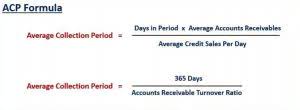
Revenue is deferred when payment is received before the goods or services are delivered. The timing difference in deferral accounting is the recognition of revenue and expenses after cash has actually been exchanged. Accruals and deferrals are the basis of the accrual method of accounting, the preferred method by generally accepted accounting principles (GAAP).
For example, if a company provides a service in June but doesn’t receive payment until July, the revenue would still be recorded in June under accrual accounting. Similarly, if the company receives a bill for utilities in June but doesn’t pay it until July, the expense would be recognized in June. The focus https://www.bookstime.com/articles/what-is-a-cost-benefit-analysis here is on the earning of revenue or the incurring of expense, not the movement of cash. The accrual accounting method provides a more accurate representation of the company’s financial performance during the period when the services were actually rendered, even if the cash transaction occurs later.
What is the Difference Between Accruals and Deferrals in Adjusting Entries?
As you deliver the service over the year, you gradually reduce the liability and recognize it as revenue. Accrued interest refers to the interest that has been earned on an investment or a loan, but has not yet been paid. For example, if a company has a savings account that earns interest, the interest that has been earned but not yet paid would be recorded as an accrual on the company’s financial statements. In conclusion,
both accrual and deferral approaches have their merits depending on your business needs. Some companies opt for accrual-based methods due to their accuracy
and ability to provide valuable insights into financial standing. Ultimately,
the choice between these two approaches will depend on factors such as industry standards,
company size, and individual business requirements.

The balance sheet provides a snapshot of the company’s financial position at a specific point in time, including assets, liabilities, and equity. It reflects the impact of deferral accounting through line items such as prepaid expenses and deferred revenue, accrual vs deferral which indicate future expenses and income. One of the main differences between accrual and deferral accounting is the timing of revenue recognition. Accrual accounting recognizes revenue when it is earned, even if the payment is received at a later date.